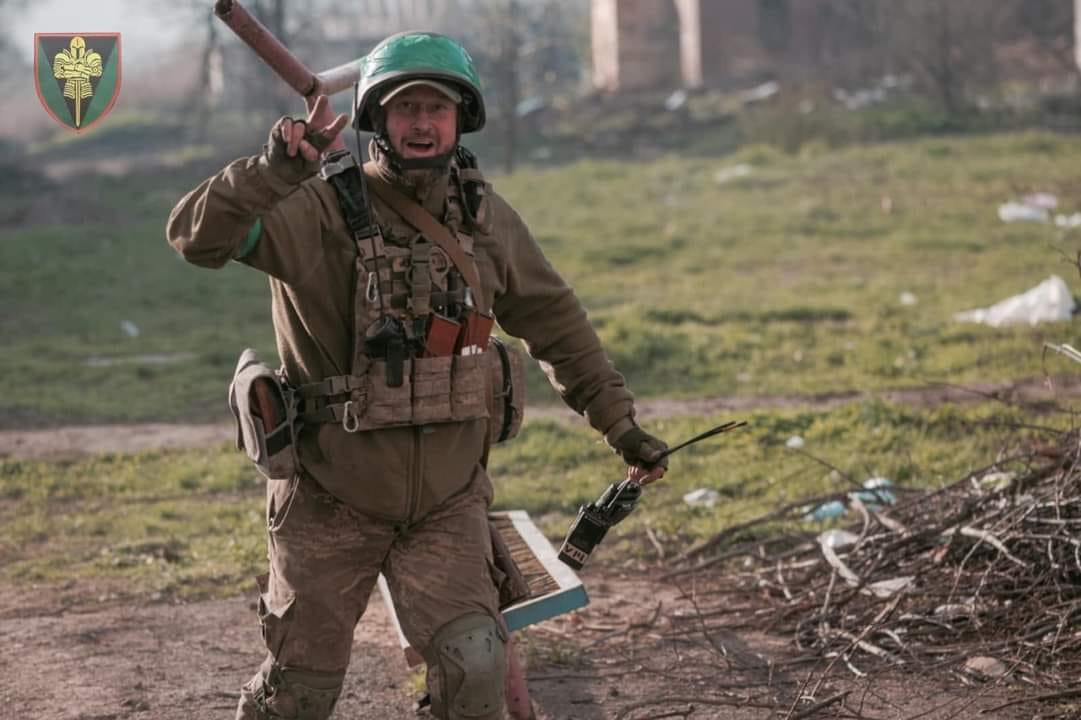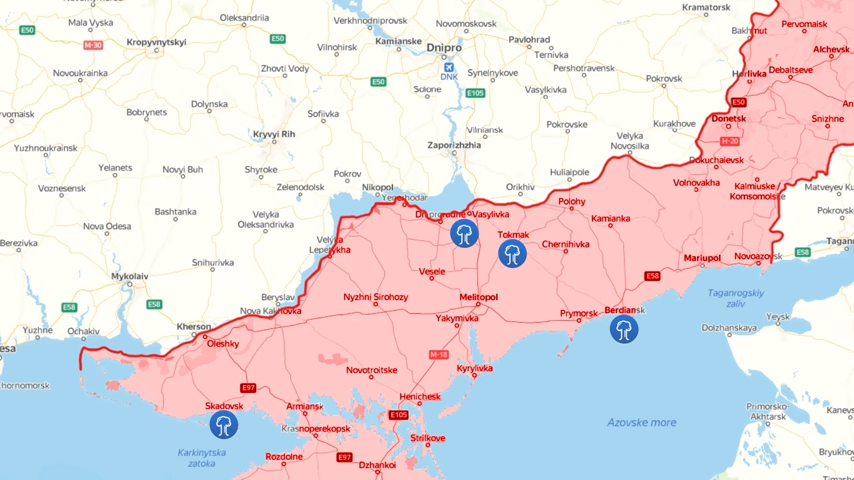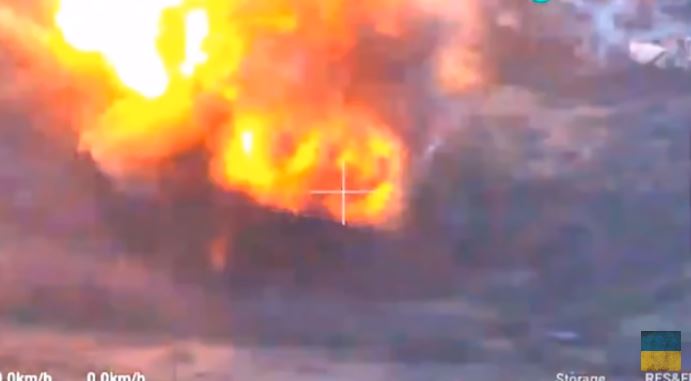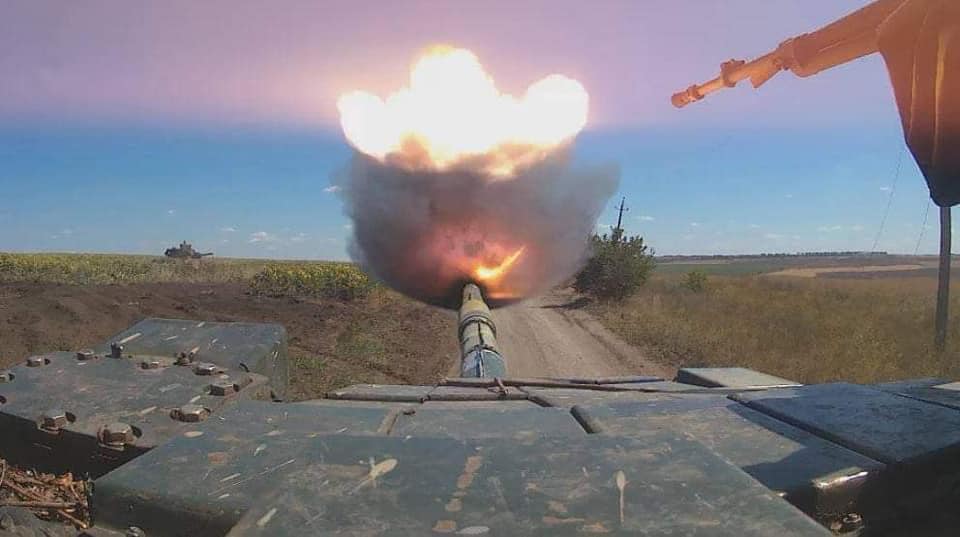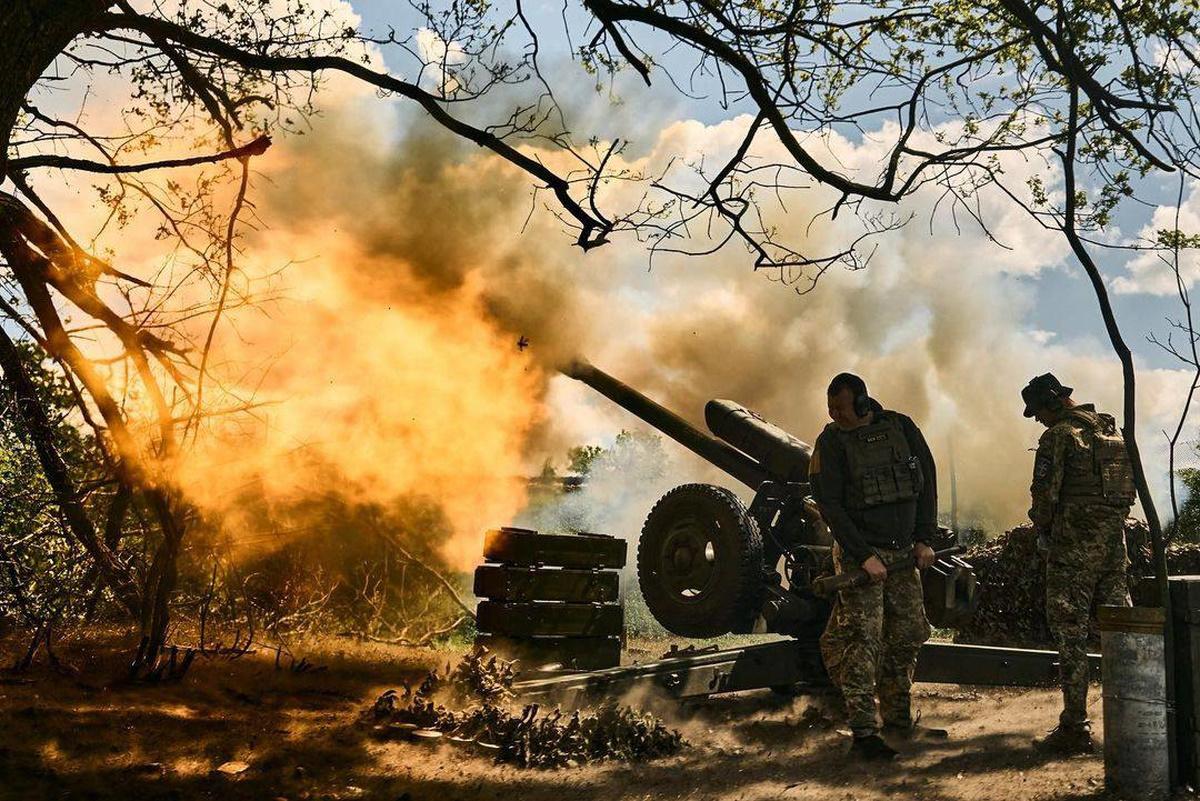During a joint press conference with Dutch Prime Minister Mark Rutte, President Volodymyr Zelensky expressed overwhelming confidence in Ukraine’s ability to mount a successful counter-offensive. In his words, “We are really preparing for a counter-offensive and do not think that we may not succeed.”
Western officials are echoing Zelensky’s optimism. Chairman of the US Joint Chiefs of Staff Mark Milley recently declared, “So I would tell you that the Ukrainians right now have the capability to attack, they can conduct offensive operations, and they also have the capability to defend, significantly enhanced from what they were just a year ago for conventional operations.”

To get a clearer sense for Ukraine’s preparedness for a counter-offensive and the lessons that it learnt from the defense of Kyiv, I spoke with Maksym Marchuk. Marchuk is a senior official in the Main Directorate of Intelligence (GUR), which previously served in Ukraine’s Foreign Intelligence Service (SZRU) and has the head of GUR’s analytical department.
Marchuk played an active role in turning the tide of Russia’s Kyiv offensive and protecting civilians’ lives in the Ukrainian capital.
During our interview, Marchuk shared Zelenskyy’s and Milley’s optimism about Ukraine’s counter-offensive preparedness. He emphasized that a Ukrainian counter-offensive would not come at the cost of its defensive preparedness and stated that “Ukraine’s priority is to neutralize Russia’s ability to attack.”
While Russia’s conventional offensive capabilities appear blunted in Bakhmut, fears of an asymmetric escalation loom large. Although extreme hawks, such as Security Council Secretary Nikolay Patrushev and Federal Security Service Director Alexander Bortnikov, have sway over nuclear policy, Marchuk said the following on Russia’s potential tactical nuclear weapons use: “I do not think that Putin will take that step.”
Marchuk’s optimism about forthcoming Ukrainian offensive operations was inspired by three factors.
1. The delivery of Western air defense systems, which have deterred the entry of Russian aircraft onto the frontlines and complemented the “incredible heroism of Ukrainians and the unusual military strategy and tactics of Ukraine.”
2. The effectiveness of Ukrainian psychological warfare against Russia. Marchuk emphasized growing fissures within Russia’s political system and society that play to Ukraine’s advantage. In addition to capital outflows, Marchuk claimed that Russian elites are making contacts within Ukraine to protect themselves.
He alleged that “a large number of oligarchs are investing in Ukrainian military bonds, as they are aware that Russia has lost the war.” Marchuk also highlighted “serious disagreements” amongst the pro-Russian figures in the occupied territories and claimed that even in Crimea, Kremlin proteges are preparing to flee or cooperate with the Ukrainian military. He also linked Russia’s decision to label GUR head Kyrylo Budanov a terrorist to its alarm about residents of Crimea collaborating with the Ukrainian security services.
In contrast to the divisions in Russia, Marchuk highlighted Ukraine’s extraordinary unity as a major asset. Marchuk recalled that when Russia attacked Kyiv, “mobilization queues were one and a half kilometers long,” and support from the West and foreign legions of Belarusians, Georgians, and Russians bolstered their morale. This unity persisted despite Russia’s efforts to corrode Ukraine from within. Marchuk noted that “Russia invested a lot of money in destabilizing Ukraine and bribing officials” in the two decades leading up to its February 2022 invasion. These efforts failed due to the efficacy of strategic communications between the Ukrainian military and civil society, which Russia lacked. Marchuk also emphasized that “Bombing and relying on the use of terror” turned Ukrainian society away from Russia, and stated that “Russia exports destabilization, chaos, corruption and propaganda to other countries, as it lacks soft power.”
3. GUR’s tactical versatility, which was evident from its response to the Kyiv offensive. Marchuk stated that “We turned all the strengths of the Russians, such as their advantage in technology, into weaknesses.”
Lessons learned from Russia’s failed assault on Kyiv
Marchuk detailed how Ukraine gained experience in capitalizing on Russia’s logistical weaknesses, disrupting Russia-Belarus cooperation and on countering Russian sabotage techniques. These experiences will aid Ukraine’s forthcoming counter-offensive.
Marchuk described how Ukraine deftly pushed Russian forces into Kyiv and in the process, overstretched their logistics. He recalled how “Russia’s long column of vehicles turned into a continuous traffic jam and was immobile,” and that soldiers in this column were given expired food. Budanov capitalized on its Russia’s immobile column by creating “special groups” of 30 people and 2-3 units with equipment, and it took only 20 of these groups to cause Russia’s logistics to collapse. Marchuk argues that the quality of training of the 72nd mechanized brigade was especially critical in strengthening these small groups.
Battle of Kyiv: tactics and tricks that saved Ukrainian capital
Ukraine’s operation to thwart the landing of Russian troops in Hostomel, an airfield 30 km to the north of Kyiv, was crucial to preventing the capital from being seized. Then, Ukraine’s National Guard and the first intelligence department destroyed not only a large number of helicopters and elite troops, but also prevented the landing of many Il transport airplanes carrying hundreds of paratroopers each. These were forced to land in Belarus and move on foot columns towards Bucha and Irpin.
Marchuk also highlighted Budanov’s decision to flood dams instead of landing forces in Hostomel and its strikes on bridges near a major hydroelectric power station, which did not destroy the plant itself. To thwart Russian offensive operations that might accompany a Ukrainian counter-offensive, GUR could revive this playbook.
To complement these deft military tactics, Ukraine also restricted Russia’s ability to leverage logistical support from Belarus.
Marchuk described Belarus as a “weak link in Russia’s war effort,” as President Alexander Lukashenko is trying to do everything possible not to enter the war, and Belarusian elites were willing to sabotage military orders. Marchuk believes that the sudden death of Belarusian Foreign Minister Vladimir Makei in November 2022 was interconnected with the events in Ukraine.
With respect to combatting Russian sabotage operations, Marchuk recalled how Budanov “within hours” foiled a Russian plot to release prisoners from a pre-trial detention center in Kyiv “to pump the streets with criminals” and ensure chaos in the streets. The Wagner Group arrived in Kyiv after Russia’s prisoner release plot failed but it was unable to create terrorist attacks or assassinate Zelensky. Marchuk also praised the ability of the Ukrainian intelligence services to infiltrate into the Russian military, which prevented the assassination attempt on Zelenskyy as well as a Russian chain of terrorist attacks inside Kyiv.
While Ukraine’s ability to sustain counter-offensives on multiple axes of advance and destroy Russia’s fortification infrastructure is unclear, there is considerable cause for optimism. As in-fighting sharpens between the Wagner Group and the Russian Ministry of Defense, Ukraine can leverage its unity and replicate its experience capitalizing on Russian logistical failures in Kyiv.

Samuel Ramani is an Associate Fellow at the Royal United Services Institute and a tutor of politics at the University of Oxford, where he received his DPhil in 2021. Samuel is the author of “Russia in Africa: Resurgent Great Power or Bellicose Pretender?” and “Putin’s War on Ukraine: Russia’s Campaign for Global Counter-Revolution,” which were published by Hurst in 2023.
Related:
- Battle of Kyiv: tactics and tricks that saved Ukrainian capital
- Ukraine’s counteroffensive near Kharkiv: what enabled the Balakliia blitzkrieg
- Like Napoleon’s 1812: why Russian troops retreated from northern Ukraine
- One year of Russia’s all-out war: from battle of Kyiv to battle of Bakhmut
- Ukrainian theology professor turned sniper tells how to hunt for Russian invaders




